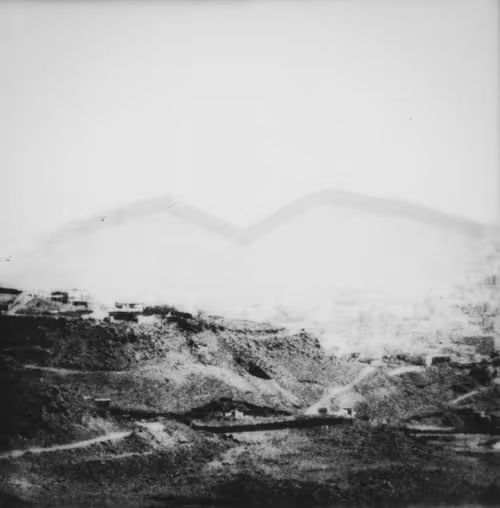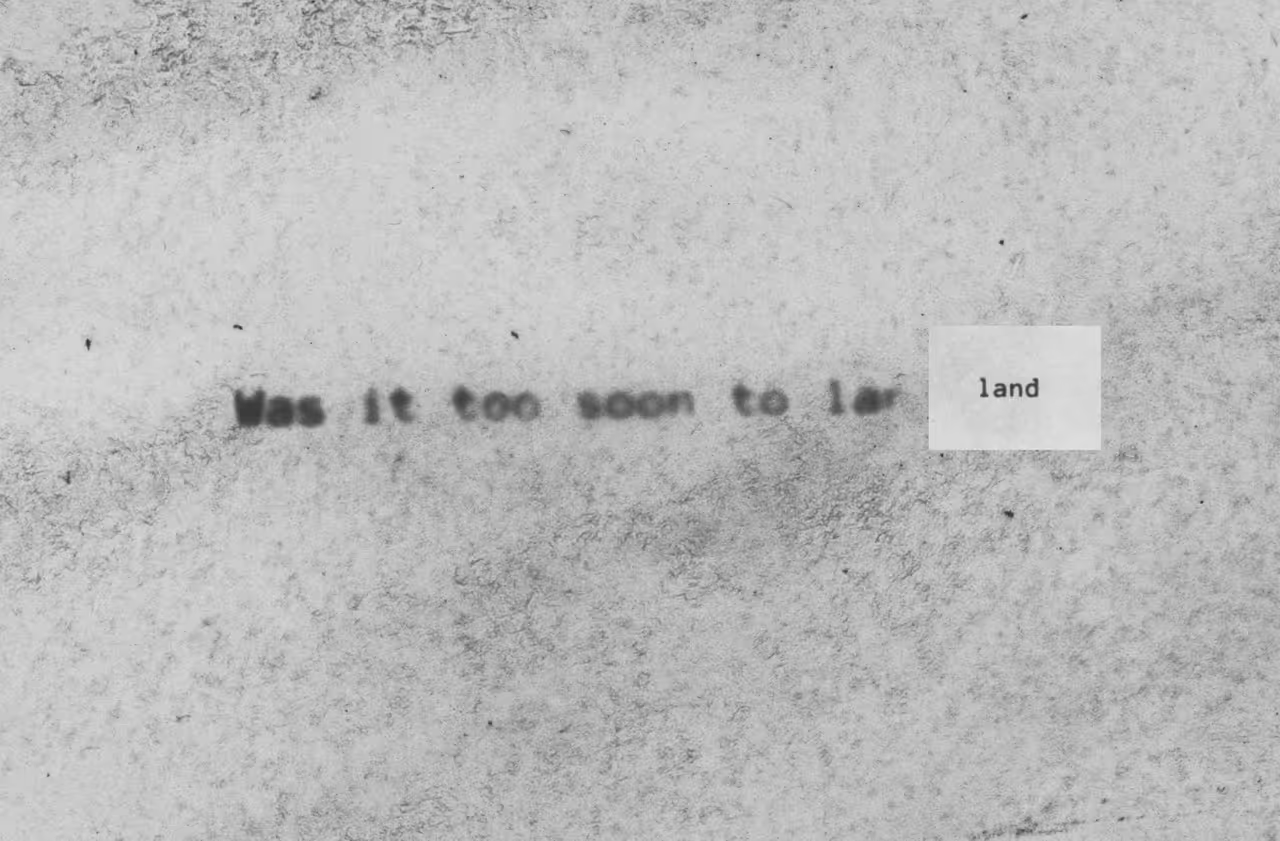
Haunted by absence and shaped by return, Imagine Me Like a Country of Love is Thana Faroq’s deeply personal exploration of grief, memory, and the fragile act of coming home. During her FUTURES Residency in Amsterdam, we spoke with the artist about the emotional terrain of revisiting Yemen, and how the project became a way to hold onto what war had tried to erase.

How did the idea for your project, "Imagine Me Like a Country of Love," come to life?
It began with the notion of return—returning to my homeland, Yemen, after almost a decade of absence due to the war. When I came to the Netherlands seeking refuge, I couldn't visit. Once it became possible, I returned to visit my family, but the project unexpectedly unfolded from that. My relationship with my family during my time away had been over the phone and FaceTime, with conversations like "I'll see you, I can't wait to see you, I miss you." It felt so romantic, hopeful, and beautiful in its way, keeping the connection alive despite the distance. But as soon as I landed in Yemen, I felt I was facing a reality that was completely strange to me. The war was still present, and many changes had occurred, especially regarding the status of women. This return stirred many questions and deep feelings of grief, shock, and awakening, which led to the project’s creation.
What themes did you find yourself returning to while working on it?
The project is deeply rooted in grief, disturbance, and the disruption of memories. A pivotal moment came when I heard my aunt, displaced by the war, asking her son to destroy all the photos, especially those of women, fearing they represented exposure. In a society shaped by religious and conservative values, images of women are often viewed as forms of exposure—they are something deeply personal and are not easily shared.
My heart broke hearing this, as those photos were not just images; they were pieces of my family’s history—my mother’s childhood, homes, and villages that no longer existed in the same way. For years, I could only ask my mother to look for them, hoping something would remain. But when I finally returned to Yemen, the reality was heartbreaking. So much had changed, and the project became an exploration of how returning disturbed not just the place, but my memories and those of my family. It’s about the painful confrontation with the past, and how war reshapes both the land and our recollections of it.

Can you talk about the different forms you used—film, photography, writing, animation—and how they helped convey what you were feeling?
I didn’t want to limit myself to one medium. The film uses footage I recorded on my phone, as I couldn’t carry a proper camera due to safety concerns. The shaky, imperfect nature of this footage embodies the tension of my situation. Over time, I became more forgiving of the fragility of the medium. Photography, writing, and all the tools I used each had their limitations, but I began to understand that the context was far bigger than me or any individual medium. I incorporated writing, archival materials, and animation alongside the footage to explore memories that couldn’t be captured. The animation serves as a mediator between fragments of the film, linking one part to the next, and also recreating memories that were impossible to photograph. It’s about layering different elements to express the complexity of grief, as well as the process of healing and acceptance. I’ve become more understanding of these limitations, seeing them as part of the larger story that continues to unfold.
Why was it important for you to include personal archival footage?
The archival footage was a key part of the project. When I was in Yemen, I gathered the remaining photos from my family, many of which had been hidden or destroyed due to the political climate. These photos, especially those showing women in moments of joy like dancing, were essential for conveying a sense of life and joy. They allowed me to tell a story that was rich with culture and emotion, not just the trauma of war.

Do you think the personal and political are separable in your work, or do they naturally overlap?
In Imagine Me Like a Country of Love, the personal and political are not separate threads—they’re interwoven. The work is anchored in intimate memories: my mother’s voice, the landscapes of return, the fragmented images of family. But those memories don’t exist in a vacuum. They’ve been shaped, interrupted, even redefined by the experience of migration, of returning after a long absence, of living between places. Politics aren't present not as a headline, but as an undercurrent, visible in what’s been lost, what’s been altered, and in how we hold onto what remains. I try not to present politics as a topic, but as something that quietly surfaces through personal gestures, silences, or shifts in light. The editing process became a way to honour this entanglement, letting the emotional landscape guide the structure, while being mindful of how broader realities seep into every frame. It’s not about balance, really, but about acknowledging that the two can’t be separated.
Were there moments when you tried something creatively that surprised you?
Yes, there were many moments of experimentation. For example, I experimented with the family archive by printing the photos using a Polaroid format to give them an instant feel. I also experimented with different printing techniques, like using cyanotype, which allowed me to manipulate the images and create a sense of imperfection and disturbance. The writing aspect was another area of experimentation. I used fragmented writing, which doesn’t give closure but encourages the viewer to keep searching for more. This fragmented approach was crucial for conveying the sense of grief and disruption.
Additionally, the text in both Arabic and English was a significant part of the process. I’m exhibiting these fragments on their own, focusing on the texture of the words, to emphasise how the themes of the project evolve. One chapter, for example, is titled “Was it too soon to land?” This introduces a new theme and moves the narrative forward, but it doesn’t offer a resolution or closure. Instead, it creates a sense of process—a feeling of continual discovery. Each chapter introduces a new theme, and within each theme, I explore the layers of the story, not categorising them but working on the structure. This approach helps me maintain a sense of openness, where the story feels alive and unfinished, much like the project itself.


Do you see this work as finished or still evolving?
This project is ongoing and always changing. I don’t see it as finished. The work will continue to evolve as the political and cultural landscape in Yemen shifts. I will keep responding to it, and I see the feedback from the audience as part of this process. The film is set to be released this year, but it will keep evolving, just as the context around Yemen and the aftermath of war continues to unfold.
The FUTURES x MPB Residency Program is supported by MPB.
MPB is Europe’s top camera gear reseller. FUTURES FOUNDATION fully aligns with the core values of sustainability, diversity and accessibility championed at MPB. Explore MPB to buy approved used gear, or sell your own and get paid quickly.

.avif)
